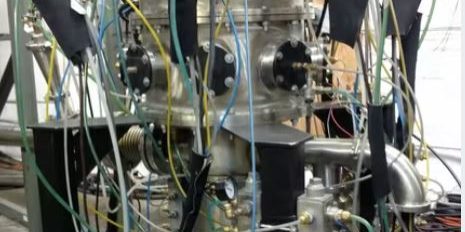Imagine a future when electric vehicles can travel thousands of miles on a single charge and cargo ships and passenger planes run on batteries instead of fossil fuels.
To make these technological leaps a reality, researchers are working to find an alternative to lithium-ion batteries that, despite their use in everything from smartphones to electric vehicles, have some disadvantages, especially their relatively low energy density compared to gasoline.
One promising alternative, a lithium-sulfur battery, has a high energy density. In other words, the sulfur cathode and the lithium metal anode allow the battery to store more Watt-hours per kilogram than a conventional lithium-ion battery.


